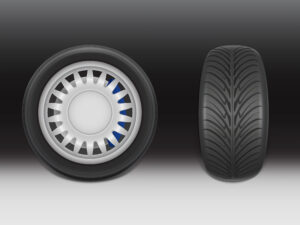Does AC in Car Consume Fuel? Comprehensive Guide to Fuel Usage and Optimization

Does AC in car consume fuel? Absolutely. The air conditioning system in your car provides much-needed comfort during warm days, but it comes at the cost of increased fuel consumption. This effect is due to the system drawing power directly from the engine, increasing its load. By understanding the mechanics of car AC fuel consumption, you can make informed decisions to optimize your fuel usage. This guide will explore everything you need to know about how AC use affects fuel, compare alternatives, and offer practical tips to help you manage fuel usage with car AC efficiently.
Understanding How Car AC Works
To fully understand why and how car AC fuel consumption occurs, it’s essential to grasp the working parts of the AC system:
- Compressor: The heart of the system, driven by the engine, compresses the refrigerant into a high-pressure, high-temperature state.
- Condenser: Transfers the heat from the compressed refrigerant to the outside air, cooling the liquid.
- Receiver Dryer: Removes moisture from the refrigerant to maintain optimal function.
- Expansion Valve: Reduces the refrigerant’s pressure, preparing it for the cooling process.
- Evaporator: The cooled refrigerant absorbs heat from the car’s cabin air, releasing cool air inside.
These components collectively contribute to the question, “Does AC in car consume fuel?”—and the answer is unequivocally yes. The energy required to power these parts increases the engine’s workload, thereby impacting fuel economy.
Power Source and Its Impact on Fuel
The AC system’s power comes directly from the engine, which burns additional fuel to support this demand. This increased fuel usage means the car runs fewer miles per gallon when the AC is on, affecting overall car AC and fuel efficiency. The amount of fuel used depends on various factors, including the AC’s operational settings and the vehicle’s type.
The Connection Between Car AC and Fuel Consumption
How AC Affects Fuel Efficiency
Does AC in car consume fuel more than other components? Studies have shown that it does, with potential reductions in fuel economy of up to 25%. This impact is influenced by several factors:
- Size and Efficiency of the AC System: Larger, older systems may consume more fuel.
- Ambient Temperature: The hotter it is outside, the more energy is required for cooling.
- Car Maintenance: A well-maintained system ensures the car AC fuel consumption is minimized.
- Vehicle Size: Smaller, fuel-efficient cars typically experience less impact than larger vehicles.
These elements collectively contribute to why fuel usage with car AC can vary significantly between different cars and driving conditions.
Differences in Fuel Use by Vehicle Type
When considering car AC and fuel efficiency, the type of vehicle matters greatly:
- Standard Combustion Engine Vehicles: Most affected by the AC’s fuel draw, especially at high power settings.
- Hybrid Vehicles: These typically use electric motors for auxiliary systems like the AC, which can help mitigate the fuel impact.
- Electric Vehicles (EVs): While EVs don’t use fuel, the AC’s power draw reduces the battery range.
This analysis shows that car AC fuel consumption can differ, but its impact is always present in some form.
Alternatives and Comparisons
Windows Down vs. AC On – A Real Comparison
A popular debate in fuel efficiency circles is whether it is better to drive with the windows down or use the AC. The answer depends on speed:
- Low Speeds (City Driving): At lower speeds, driving with windows down can be more fuel-efficient than using the AC.
- High Speeds (Highway Driving): Open windows create aerodynamic drag, leading to increased engine load and higher fuel usage with car AC being preferable for fuel efficiency at high speeds.
By analyzing these scenarios, it becomes clearer how car AC and fuel efficiency can be optimized depending on driving conditions.
Impact on Different Driving Conditions
- City Driving: With frequent stops and low speeds, driving with windows down is a viable option to save on fuel.
- Highway Driving: When driving at speeds over 50 mph, using the AC while keeping windows closed minimizes aerodynamic drag, optimizing overall car AC fuel consumption.
Best Practices for Reducing AC Fuel Consumption
To maintain a balance between comfort and car AC fuel efficiency, consider these tips:
- Park in Shaded Areas: Reduces cabin temperature before starting the car, allowing the AC to cool it faster and use less energy.
- Ventilate Before Using AC: Open windows briefly to let out hot air, decreasing the AC’s initial workload.
- Regular AC Maintenance: Ensures efficient performance and minimizes excessive car AC fuel consumption.
- Use Recirculation Mode: Recirculates the cooler cabin air, reducing the system’s need to cool incoming hot air.
- Set Moderate Temperatures: Avoid maxing out the AC; a moderate setting will help reduce fuel usage with car AC.
When to Turn Off the AC
For maximum fuel savings:
- City Drives with Mild Weather: Open windows and avoid AC use when temperatures are moderate.
- Short Trips: AC might not be necessary for brief journeys where cabin cooling isn’t essential.
Real-World Examples and Case Studies
Practical Insights from Studies
A study by the Society of Automotive Engineers revealed that AC usage could decrease fuel efficiency by up to 25% on hot days. On cooler days, the impact is reduced, highlighting how environmental conditions affect car AC and fuel efficiency.
User Anecdotes
Drivers have shared experiences where strategic AC use improved their overall fuel economy. For example, switching to recirculation mode on long trips improved one user’s mileage by 5-10%, demonstrating practical ways to optimize car AC fuel consumption.
Conclusion
So, “Does AC in car consume fuel?” Yes, and while the degree of impact varies, understanding how to use your AC effectively can help mitigate fuel consumption. Through strategic use, maintenance, and awareness of driving conditions, you can strike a balance between comfort and optimal car AC fuel consumption.
CTA: Keep Your Car AC Efficient with KwikFix Auto
Ensure your car’s AC is running at peak performance with KwikFix Auto. Our expert maintenance and repair services can help you achieve maximum comfort and optimal car AC fuel consumption. Experience our reliable, on-site services and keep your vehicle fuel-efficient. Contact KwikFix Auto today to schedule your service!
Frequently Asked Questions
Q1. Does AC in car consume fuel even when set on low?
A1. Yes, it still consumes fuel, but the amount is lower compared to higher settings.
Q2. Is using car AC at full blast always necessary?
A2. No, moderate settings can achieve comfort and improve car AC fuel efficiency.
Q3. Does rolling down windows use more fuel?
A3. At high speeds, yes; increased drag makes fuel usage with car AC more efficient.
Q4. How often should I maintain my AC to reduce fuel consumption?
A4. Regular checks, ideally every 6-12 months, are recommended.
Q5. Does AC in car consume fuel more in larger vehicles?
A5. Yes, larger vehicles with more powerful AC systems generally consume more fuel.
Q6. Can using recirculation mode save fuel?
A6. Yes, it reduces the workload on the AC system.
Q7. How much fuel does the car AC typically consume?
A7. Estimates range from 0.2 to 0.4 liters per hour, depending on the car and conditions.
Q8. Does AC affect electric vehicles similarly?
A8. While not using fuel, it can reduce the battery range in EVs.
Related Articles
AC Not Working in Car | Car AC Coil Replacement Cost | How to Use Car AC | Car AC Problems | Car AC Cleaner Foam | Car AC Evaporator Cleaner | AC Switch for Car | Cost of Replacement Electric Car Batteries | Is Apollo Tyre Good | Apollo Tyres vs MRF Tyres





